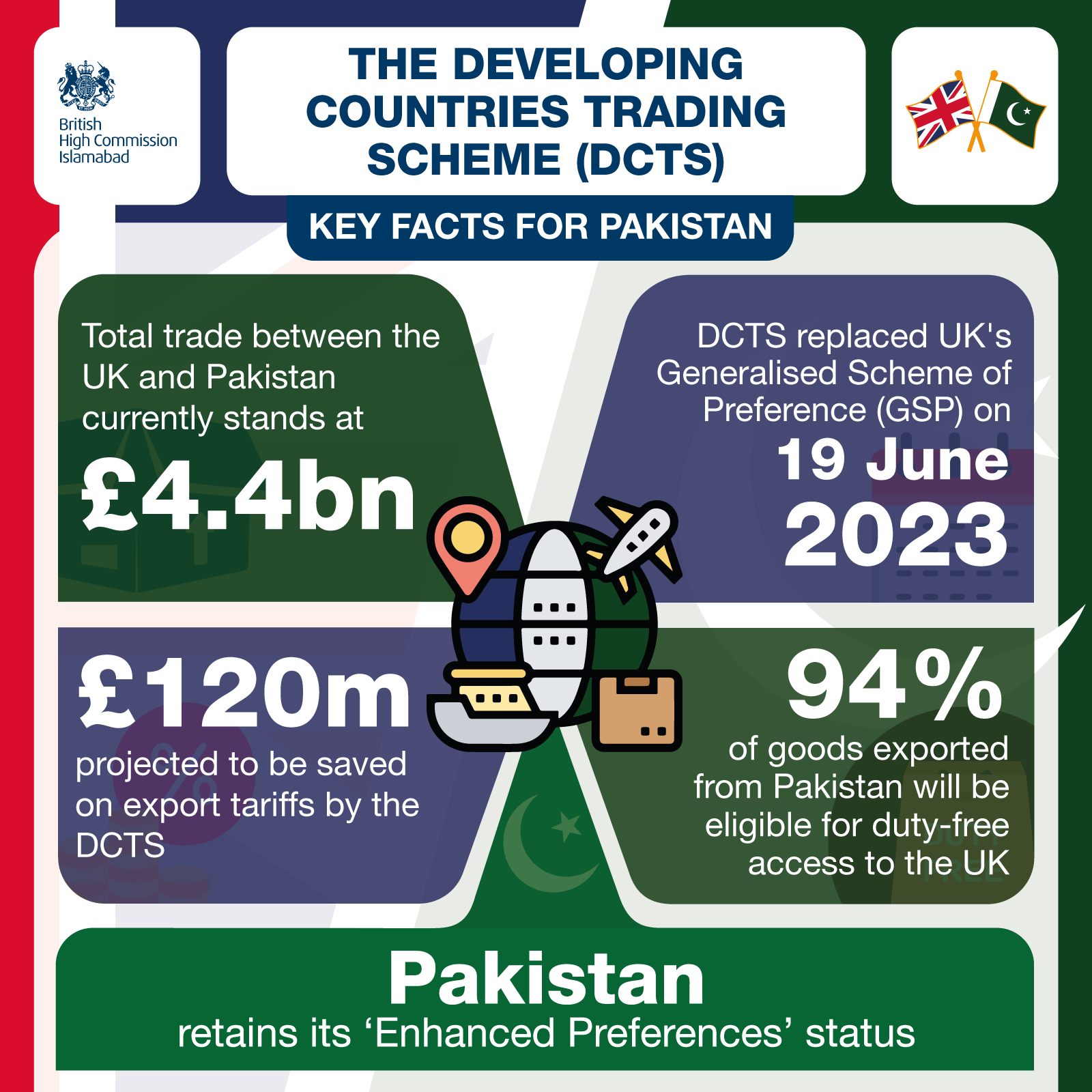The United Kingdom’s Developing Countries Trading Scheme (DCTS) has now entered into effect, providing tariff reductions and simpler terms of trade to Pakistan and 64 other countries.
The new scheme has replaced the Generalised Scheme of Preferences (GSP) and will help drive business between the UK and developing countries, reducing the need for aid.
UK Minister for International Trade Nigel Huddleston launched the scheme on Monday, during a visit to Ethiopia’s largest industrial business park, Bole Lemi. Under the DCTS, Pakistan has retained its enhanced preferences status and will continue to benefit from duty-free exports to the UK on 94% of goods exported. It will also remove tariffs on over 156 additional products, and simplify some seasonal tariffs.
Total trade (goods and services) between the UK and Pakistan each year currently stands at £4.4 billion. It is expected that £120 million in tariffs will be saved on exports to the UK under the scheme.
Pakistan and other DCTS countries will be supported to participate in the international trading system through the UK’s Trade Centre of Excellence, which will provide specialist support to fully participate in the global trading system. This may include support on meeting trade standards, and participating in multilateral trade forums.
UK’s Trade Director for Pakistan and British Deputy High Commissioner, Karachi, Sarah Mooney, said:
“This is a major development in the trading relations between the UK and Pakistan. This important new scheme will further strengthen the economic ties between our two great countries, helping Pakistan to bolster its exports to the UK and harness the power of trade for development.’’
Notes to editors:
- DCTS covers 37 countries in Africa, 26 in Asia/Oceania/Middle East and 2 in the Americas, representing varied and exciting trade opportunities around the world.?The scheme was announced last year, and legislation has since been finalised to bring it into force.
- DCTS is a major milestone in growing free and fair trade with 65 developing nations that are home to more than 3.3 billion people. It is one of the most generous trade preferences schemes in the world, providing preferential trade access to 65 developing countries which collectively export over £21bn in goods to the UK.
- The DCTS retains and broadens the government’s powers to suspend countries from the scheme if they systematically violate human rights and labour rights. It grounds all suspension decisions in the principles and obligations of international conventions and extends these to include climate change and environment related agreements. This signals UK’s commitment to tackling climate change and reducing trade that is harmful to the environment.
- Some of the specific goods which benefit most from the DCTS in Pakistan include over £250m of average annual exports to the UK of bedlinen and almost £100 million of jeans which will each receive a 12 percent reduction in import duty.
















